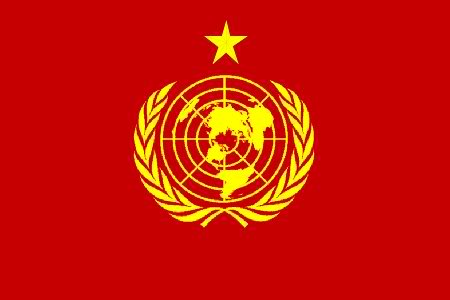taixyz1992
Red Army Recruit
Posts : 269
Join date : 2010-10-22
 |  Subject: National politics Subject: National politics  Thu Dec 02, 2010 1:06 pm Thu Dec 02, 2010 1:06 pm | |
| Article 2 of Brazil's Constitution held both the emperor and the National Assembly, which in 1824 was composed of 50 senators and 102 deputies, as the nation's representatives. This endowed the Assembly with both status and authority. The Constitution created legislative, moderating, executive and judicial branches as "delegations of the nation" with the separation of those powers envisaged as providing balances in support of the Constitution and the rights it enshrined.[4] Emperor Pedro II surrounded by prominent politicians and national figures c. 1875. Because the emperor was the head of both the moderating and executive branches (being aided by the Council of State and the Council of Ministers, respectively), he had the final say and held ultimate control over the national government. Even so, the prerogatives and authority granted to the legislature within the Constitution meant that it could and would play a major and indispensable role in the functioning of the government. It was no mere rubber stamp. The National Assembly alone could enact, revoke, interpret and suspend laws under Article 13 of the Constitution. The legislature also held the power of the purse and was required to annually authorize expenditures and taxes. It alone approved and exercised oversight of government loans and debts. Other responsibilities entrusted to the Assembly included setting the size of the military's forces, the creation of offices within the government, monitoring the national welfare and ensuring that the government was being run in conformity to the Constitution. This last provision allowed the legislature wide authority to examine and debate government policy and conduct.[5] north carolina internet marketingvending machines | |
|
heroisthai
Komsomol Member
Posts : 188
Join date : 2010-11-21
 |  Subject: Re: National politics Subject: Re: National politics  Fri Jan 14, 2011 1:28 pm Fri Jan 14, 2011 1:28 pm | |
| Because the emperor was the head of both the moderating and executive branches (being aided by the Council of State and the Council of Ministers, respectively), he had the final say and held ultimate control over the national government. Even so, the prerogatives and authority granted to the legislature within the Constitution meant that it could and would play a major and indispensable role in the functioning of the government. It was no mere rubber stamp. The National Assembly alone could enact, revoke, interpret and suspend laws under Article 13 of the Constitution. The legislature also held the power of the purse and was required to annually authorize expenditures and taxes. It alone approved and exercised oversight of government loans and debts. Other responsibilities entrusted to the Assembly included setting the size of the military's forces, the creation of offices within the government, monitoring the national welfare and ensuring that the government was being run in conformity to the Constitution. This last provision allowed the legislature wide authority to examine and debate government policy and conduct.[5]
| |
|
